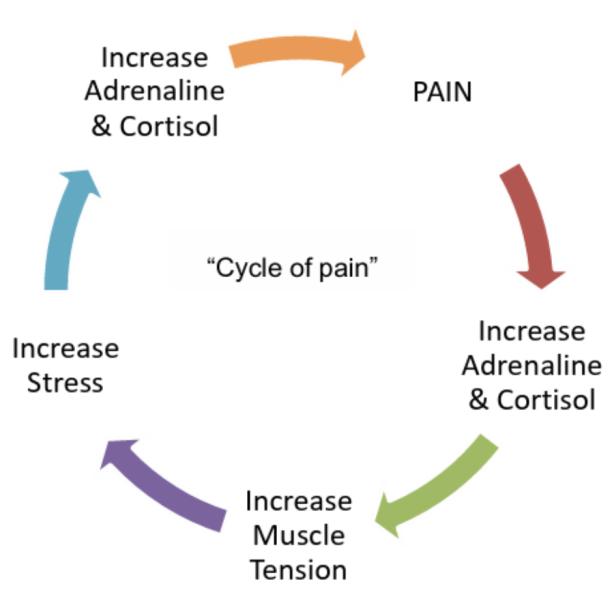Understanding your pain
I understand why I am in pain, but why do I feel so terrible?

As part of the pain process, the brain triggers the release of different chemicals or hormones. These include the ‘fight or flight’ hormones or stress chemicals which are a normal and effective part of our protective system.
We can experience; tense muscles, faster shallow breathing or breath holding, increased heart rate, sweat, nausea and anxious thoughts. When pain persists, this ‘alarm’ system can be switched on. This causes a sensitised nervous system, often called ‘faulty signalling‘. This creates a threat response and a further release of stress chemicals.
Increased stress chemicals over a long period of time, can make people feel very fatigued. Persistent pain can have a significant impact on a person’s quality of life. Many people notice that they worry more, often feel frustrated and low in mood. They describe that they move less and do less activity, which in turn, can cause secondary pain from body deconditioning and more distress. Pain often disturbs sleep and adds to the overall struggle to cope.
Key message: Persisting pain can lead to heightened stress chemicals in the body, creating a constant state of ‘fight or flight’. This can cause prolonged muscle tension which can be exhausting and detrimental to sleep, mood and overall quality of life.